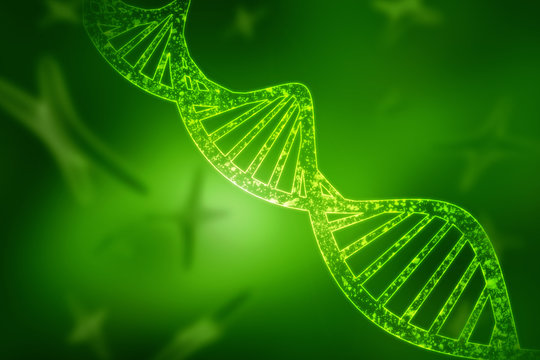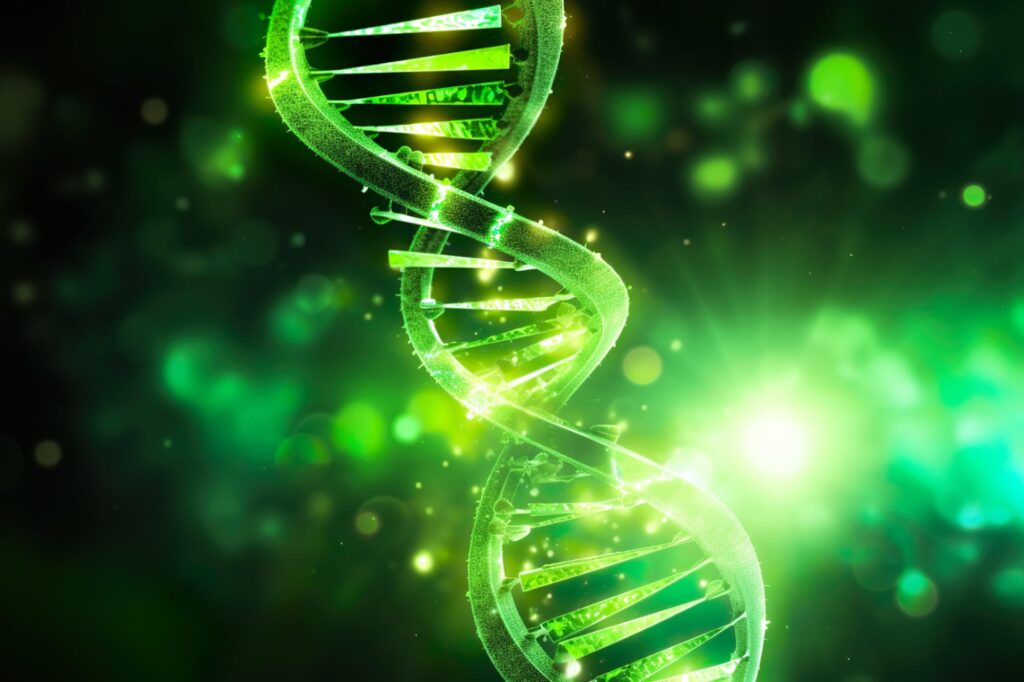Gene expression is a cornerstone of life, dictating how cells perform their functions by activating or silencing specific genes. While the genetic code provides the blueprint, gene expression determines how that blueprint is executed. Epigenetics, a field that explores changes in gene activity without altering the DNA sequence, has revolutionized our understanding of this process. By studying epigenetic mechanisms, researchers have uncovered profound insights into development, disease, and even evolution. This article delves into how epigenetics unlocks the secrets of gene expression and its potential to reshape medicine and biology.
The Fundamentals of Gene Expression
The Central Dogma of Molecular Biology
The central dogma—DNA to RNA to protein—outlines how genetic information flows within a cell. Transcription converts DNA into RNA, and translation uses RNA to synthesize proteins. However, not all genes are expressed simultaneously. Regulatory elements such as promoters, enhancers, and silencers control the timing and intensity of gene activation, ensuring that only necessary proteins are produced.
Mechanisms of Gene Expression Regulation
Gene expression is regulated at multiple levels:
- Transcriptional regulation: Transcription factors bind to DNA to initiate or suppress transcription.
- Post-transcriptional regulation: Processes like RNA splicing and degradation control RNA stability.
- Translational regulation: Proteins are synthesized based on RNA availability.
- Post-translational regulation: Modifications like phosphorylation influence protein function.
Introduction to Epigenetics
What is Epigenetics?
Epigenetics involves heritable changes in gene activity without altering the DNA sequence. It provides an additional layer of regulation, ensuring genes respond to environmental and developmental cues. Epigenetics bridges the gap between genotype and phenotype, explaining how identical genetic material can produce diverse cellular outcomes.
Major Epigenetic Mechanisms
- DNA Methylation: The addition of methyl groups to cytosine bases suppresses gene expression. Methylation plays roles in development and disease.
- Histone Modifications: Histone proteins, around which DNA is wrapped, undergo modifications like acetylation and methylation. These changes impact chromatin structure and gene accessibility.
- Non-coding RNAs: Molecules like microRNAs and long non-coding RNAs regulate gene expression post-transcriptionally.
- Chromatin Remodeling: Specialized protein complexes reposition nucleosomes, altering DNA accessibility for transcription.
Epigenetic Inheritance
Epigenetic changes can be passed across generations, influencing traits without altering DNA. This transgenerational inheritance has implications for evolution and adaptation.
Epigenetics and Development

Role in Embryonic Development
During embryogenesis, epigenetic reprogramming ensures cells differentiate into specialized types. DNA methylation and histone modifications guide lineage specification. For example, X-chromosome inactivation in females ensures dosage compensation.
Tissue-Specific Gene Expression
Epigenetics allows cells to maintain identity by enabling tissue-specific gene expression. Plasticity in epigenetic marks also supports tissue repair and regeneration.
Environmental Influences on Epigenetics
External factors like diet, toxins, and stress influence epigenetic patterns. The Dutch famine study revealed how prenatal malnutrition induced epigenetic changes affecting future generations.
Epigenetics in Health and Disease
Epigenetics in Cancer
Cancer often involves epigenetic dysregulation, such as hypermethylation silencing tumor suppressor genes or hypomethylation activating oncogenes. Epigenetic therapies like HDAC inhibitors and DNMT inhibitors show promise in targeting these abnormalities.
Neurological Disorders
Epigenetic changes influence neurological conditions like Alzheimer’s disease and schizophrenia. Dysregulated non-coding RNAs and histone modifications are common culprits. Understanding these changes offers new therapeutic avenues.
Chronic Diseases
Epigenetic markers link lifestyle factors to chronic conditions like diabetes and cardiovascular disease. For instance, obesity-related epigenetic changes can predispose individuals to metabolic disorders.
Aging
Epigenetic changes accumulate with age, contributing to the aging process. Epigenetic clocks, which measure biological age, are being used to explore anti-aging interventions.
Tools and Techniques for Epigenetic Research
DNA Methylation Analysis
Techniques like bisulfite sequencing and pyrosequencing identify methylation patterns, providing insights into gene silencing and imprinting.
Chromatin Immunoprecipitation (ChIP)
ChIP reveals histone modifications and transcription factor binding, offering a detailed epigenetic profile.
RNA Sequencing
Single-cell RNA-seq uncovers the role of non-coding RNAs in gene regulation, enabling precise epigenetic mapping.
Epigenome Editing
CRISPR-dCas9 systems allow targeted modifications to epigenetic marks, holding therapeutic potential for diseases like cancer and genetic disorders.
Epigenetics and Personalized Medicine
Role in Drug Response
Epigenetic markers influence how individuals metabolize drugs. Understanding these markers enables personalized treatment plans, improving efficacy and minimizing side effects.
Epigenetic Therapies
Epigenetic drugs like HDAC inhibitors are being combined with immunotherapies to treat cancers. Future therapies aim to precisely edit epigenetic marks.
Epigenetics in Diagnostics
Epigenetic biomarkers are being used to detect diseases early. Non-invasive tests, such as liquid biopsies, analyze methylation patterns to identify cancer and other conditions.
Ethical and Social Implications of Epigenetic Research
Ethical Concerns
The potential for misuse of epigenome editing raises ethical questions. Ensuring equitable access and preventing discrimination based on epigenetic data are critical.
Social Impacts
Epigenetics can guide public health policies by identifying populations at risk for certain diseases. However, disparities in research representation need to be addressed.
Future Directions in Epigenetics
Advances in Epigenome Mapping
Projects like the Human Epigenome Project aim to map epigenetic marks comprehensively, integrating them with genomic and proteomic data.
Artificial Intelligence in Epigenetics
AI and machine learning are being used to predict epigenetic changes and uncover gene-environment interactions, accelerating research.
Evolutionary Biology
Epigenetics is reshaping our understanding of evolution, highlighting its role in rapid adaptation and speciation.
Expanding Epigenetic Therapies
Future therapies will target specific epigenetic mechanisms with higher precision, reducing side effects and improving outcomes for rare diseases.
Conclusion
Epigenetics has revolutionized our understanding of gene expression, offering profound insights into biology, health, and disease. By bridging the gap between genetics and environment, epigenetics holds the potential to transform medicine, diagnostics, and therapeutic interventions. Continued research and investment will unlock its full potential, paving the way for a future where epigenetics plays a central role in improving human health.


